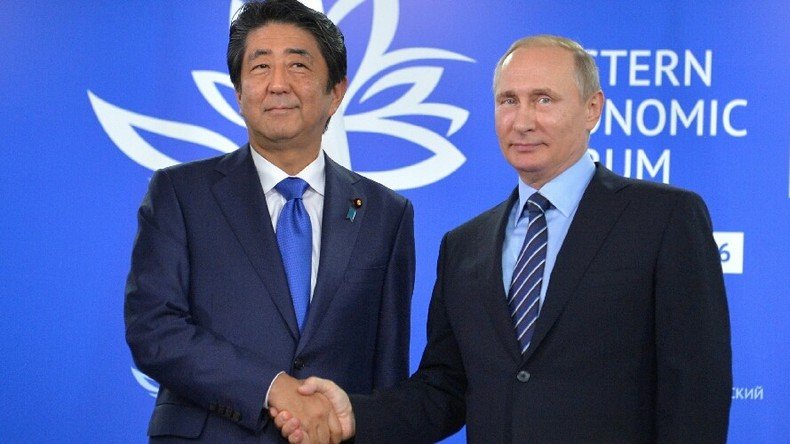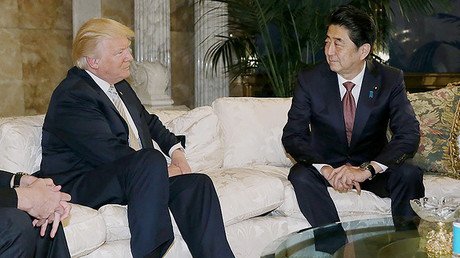Japan defies US opposition to next week’s Putin visit – report

Japan has brushed off US objections to planned talks between Prime Minister Shinzo Abe and Russian President Vladimir Putin, set to take place in Tokyo later this week, diplomatic sources say.
“Although Japan needs to play a role as a G7 member, it is also natural for us to pursue national interests and holding a summit meeting in Tokyo causes no problem,” a Japanese government source told Kyodo news agency. Earlier this week, Japan formally announced the talks for next Thursday, December 15, as well as another meeting in Yamaguchi Prefecture on Friday, December 16.
According to its sources, the news agency reports, Washington expressed its displeasure with the upcoming bilateral Abe-Putin summit through diplomatic channels on a number of occasions in November, allegedly voicing concern that the meeting could “send the wrong message that the Group of Seven (G7) industrialized nations is not totally united in pressuring Moscow.”
Japanese authorities have reportedly dismissed these claims, saying that the visit should not be seen as granting Putin any special favors, as he will not be meeting with Emperor Akihito.
Although ties between the two nations have improved since the end of the Cold War, there has been some tension on both sides regarding the ownership of the Kuril Islands, which are under Russian control. However, both countries have been working to revive security talks and joint naval rescue drills – practices which were halted after Crimea rejoined Russia in 2014, a move that was viewed by Japan’s Western partners as annexation, triggering sanctions against Russia.
In his annual address to Russian lawmakers on December 1, Putin said he wanted relations with Japan to improve, both in the economic and energy spheres. Abe also said recently that he hopes for progress in peace treaty talks to formally end the dispute over the Kuril Islands, Reuters reported.
The US views the warming of ties between Russia and Japan with concern, as the latter is Washington’s principal ally in Asia, and the situation may become even more unstable as the US appears to be on the verge of major changes in foreign policy. President-elect Donald Trump repeatedly blasted Japan and the defense treaty between the two nations in his presidential campaign, as well as speaking out against the Trans-Pacific Partnership agreement.













